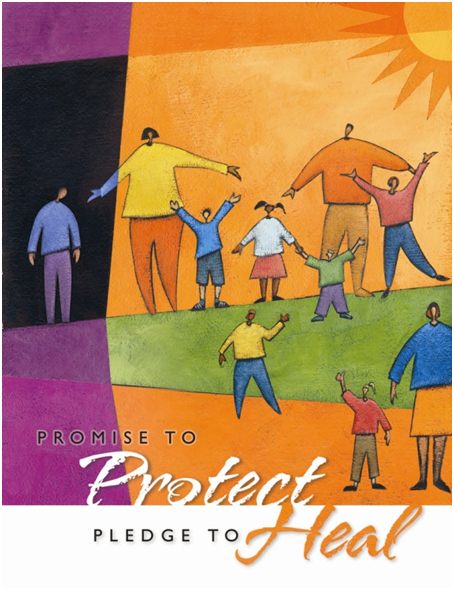
The grace and courage of mandatory reporting
Monday, April 13, 2015
*Jan Rayburn
While going through a stroll in your neighborhood, you notice a home has caught fire and you hear a child’s screams. Would you not try to retrieve the child from the home if you could do so safely, or at least call the fire department? Would you not respond to try and save that child?

I think, if asked, we would all respond positively to wanting to protect a child from any harm. And yet, we hesitate when it comes to reporting child abuse.
In fact, when cases of abuse have been disclosed, we often hear from others that they thought something inappropriate was going on. Why didn’t they say something?
To be sure it is a difficult situation. People are easily paralyzed by the “What ifs”: What if I’m wrong? What if I get in trouble? What if they find out I was the one who reported them? What if the upheaval sure to follow is too difficult to bear?
Yet the deciding factor should be the response to a different question: What is in the best interest of the child?
In Florida, all adults are mandatory reporters. Additionally, there are professionally mandated reporters that include, but are not limited to, professional child care workers, teachers and school officials. The only difference is that professionally mandated reporters cannot do so anonymously. Also, if the report is made “in good faith,” you will not get in trouble.
So we know by law, and even in our heart-of-hearts, that we should report abuse or even the suspicion of abuse. And yet the disconnect remains.
This was recognized by Virtus National when they recently re-edited the videos in their child abuse awareness and prevention program, “Protecting God’s Children.” To address this reluctance, they added visual scenarios that depicted observed inappropriate behavior and the reporting of such behavior to a supervisor. In this way, participants are told not only what and when to report but are also shown how to do so.
Still, I realize this is a very difficult decision. How does one deal with the reaction of those affected by our efforts to protect children? Because 89 percent of abuse is committed by either a family member (29 percent) or someone the child knows and trusts (60 percent), it means the one doing the reporting has some kind of relationship with the abuser.
I was reminded of this at a recent Virtus training session, when a participant shared that she had been abused as a child. She told us it is hard to tell someone when the abuser is sitting across the dinner table from you every night.
During this Easter season, convinced that Jesus died on the cross for our sins, let us act as he would, and summon the courage needed to make the hard choice and report abuse.
Because when it comes to child abuse, having the courage to do the right thing, as Dr. David Finkelhor states in the Virtus videos, “may save a child from terrible torment.”
The children and vulnerable adults in our community are relying on us to do just that.


Comments from readers